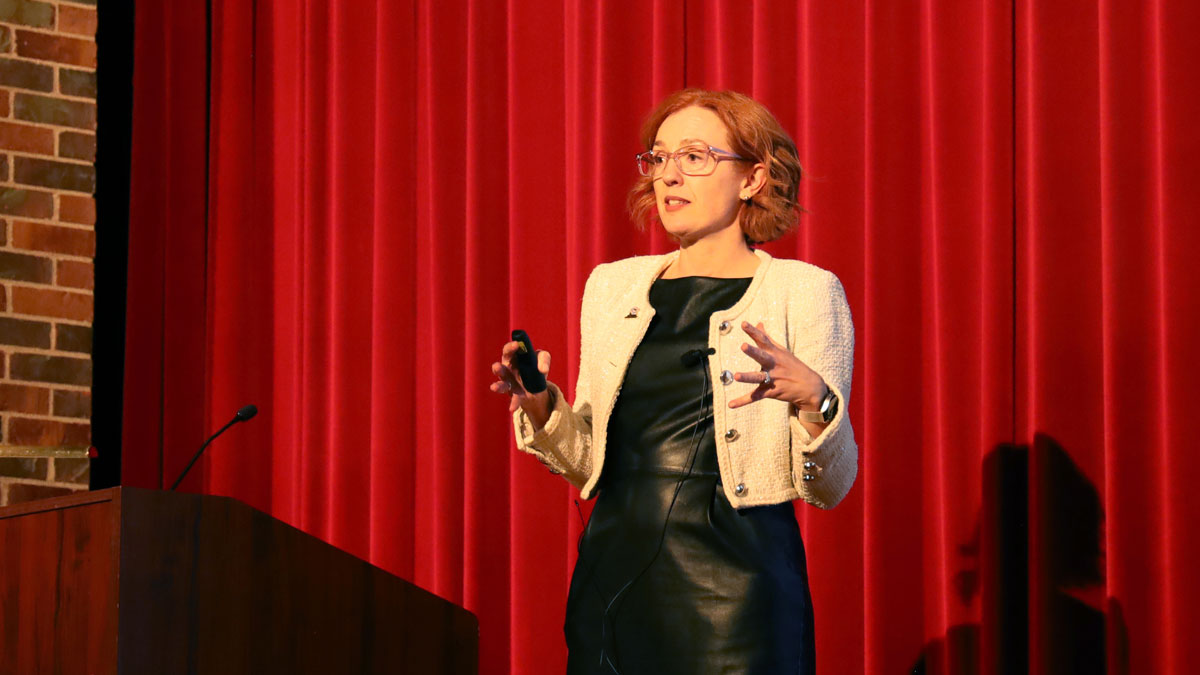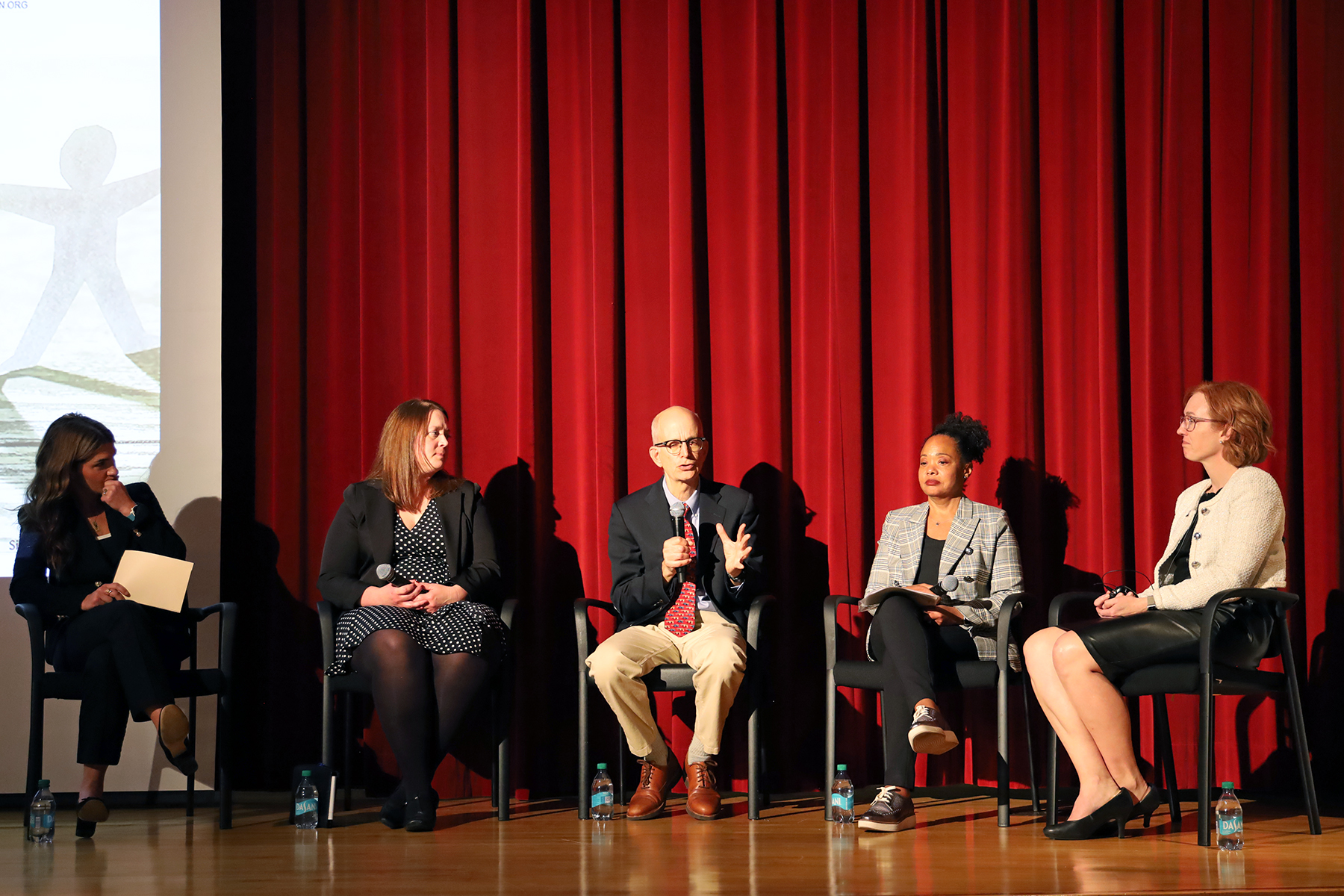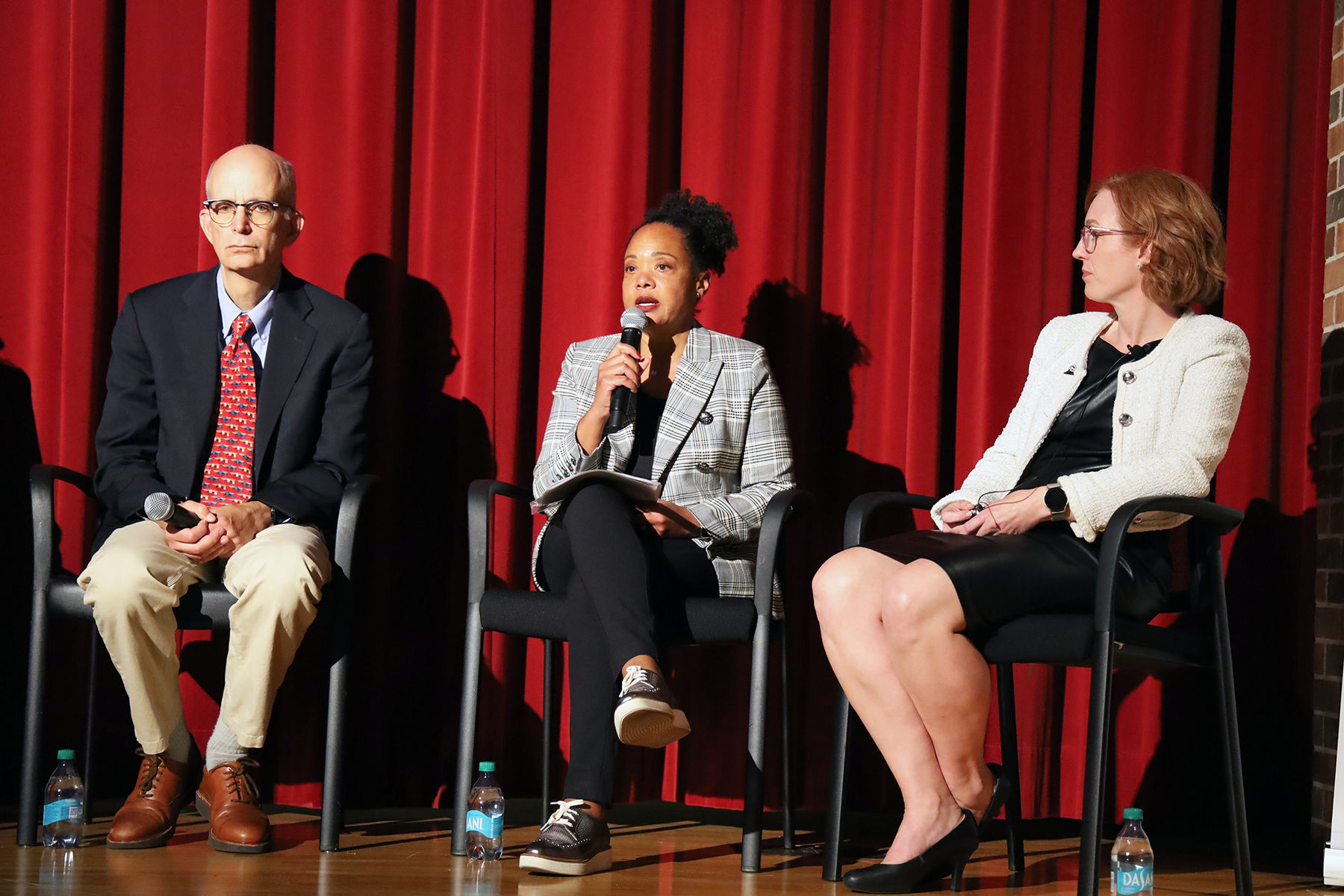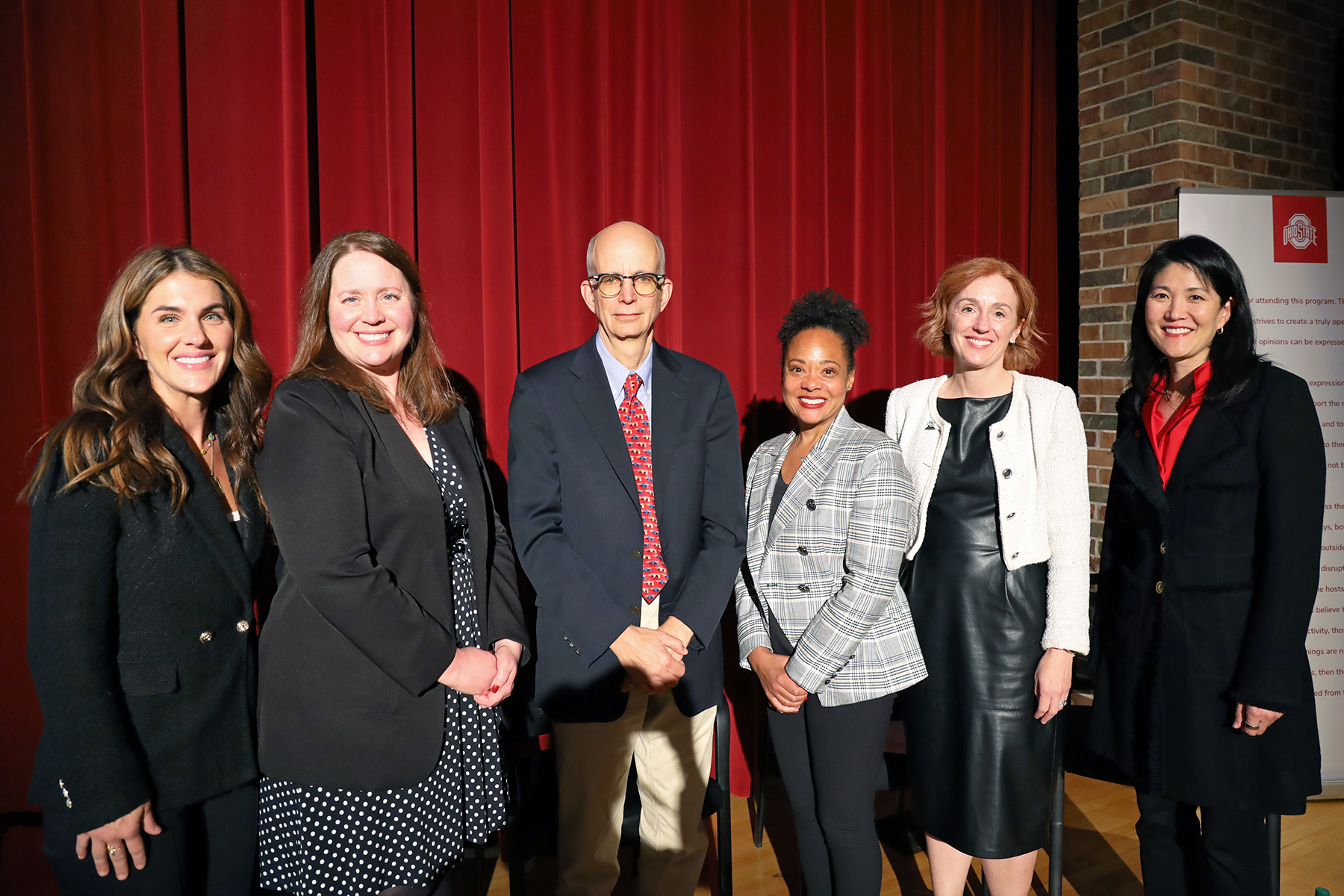Finding common ground to prevent firearm suicide
‘Changing the Conversation’ event highlights public health success with unlikely partners
By Kristen Mitchell

Although suicide often occurs in the context of longstanding mental health struggles, research shows a person in crisis will move from decision to action in the span of minutes to hours.
Creating more space between a person at risk and a lethal firearm saves lives, said Dr. Emmy Betz, an emergency physician and leading expert in firearm injury and suicide prevention.
“In that moment of crisis, if someone has access to a firearm and they use a firearm in a suicide attempt, there is no second chance,” Betz said at the College of Public Health’s “Changing the Conversation” lecture at Ohio State’s Fawcett Center on Oct. 21.
Her talk and the panel discussion that followed focused on finding common ground to reduce firearm suicides, which accounted for about 58% of all U.S. firearm deaths in 2023. As director of the Firearm Injury Prevention Initiative at the University of Colorado, Betz works with everyone from gun shop owners to hospital administrators to advocate for work to encourage safe firearm storage and successfully navigate challenging conversations. They tailor messaging to reach older white men — a group at high risk for firearm suicide and unlikely to seek support for mental health challenges, Betz said.
Taking cues from how we talk about how to prevent drunk driving, Betz frames conversations about voluntarily storing firearms outside the home with family or friends as a temporary step that does not change a person’s identity as a gun owner.
“It's saying, we want your environment to be safe while you're getting the help you need,” Betz said.
Understanding why people own firearms is also critical to supporting safe storage, Betz said. Cable locks are inexpensive and widely available, but if a person’s primary reason for having a firearm is protection, they would be unlikely to adopt storage options that require their guns to be unloaded. Advocates for preventing firearm violence, including suicide, must think about how to get people the devices they are most likely to use, Betz said.
Working on prevention efforts with those passionate about gun ownership in a collaborative, nonpartisan way cuts through “noise from the debate about gun laws,” Betz said.
“We all want the same thing at the end of the day, regardless of political views,” she said. “We want our kids and our families to be healthy and safe.”
After her talk, Betz was joined by Dr. Jon Groner, professor emeritus at the College of Medicine and retired pediatric surgeon; Dr. Nichole Michaels, principal investigator in Nationwide Children’s Hospital’s Center for Injury Research and Policy and associate professor in the Department of Pediatrics at the College of Medicine; and Dr. Mysheika Roberts, Columbus health commissioner, for a conversation moderated by CPH Assistant Professor Laura Prater.
Groner spoke about normalizing gun ownership as a public health issue, and, in clinical settings, shifting from asking adults if they own guns to how they store their guns. About four in 10 adults in the U.S. report there are guns in their home, according to the Pew Research Center.
Roberts and Michaels emphasized a continued need to look for policy solutions to prevent suicides.
About The Ohio State University College of Public Health
The Ohio State University College of Public Health is a leader in educating students, creating new knowledge through research, and improving the livelihoods and well-being of people in Ohio and beyond. The College's divisions include biostatistics, environmental health sciences, epidemiology, health behavior and health promotion, and health services management and policy. It is ranked 22nd among all colleges and programs of public health in the nation, and first in Ohio, by U.S. News and World Report. Its specialty programs are also considered among the best in the country. The MHA program is ranked 5th and the health policy and management specialty is ranked 21st.



